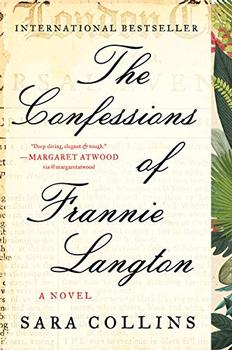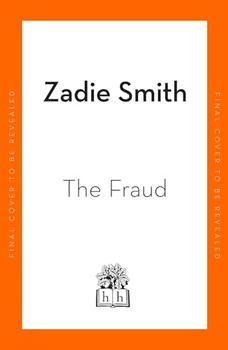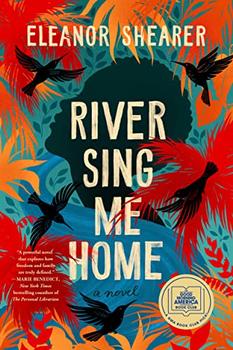Summary | Excerpt | Reading Guide | Reviews | Beyond the book | Read-Alikes | Genres & Themes | Author Bio

Critics' Opinion:
Readers' Opinion:
First Published:
May 2019, 384 pages
Paperback:
May 2020, 384 pages
 Book Reviewed by:
Book Reviewed by:
Norah Piehl
Buy This Book
A servant and former slave is accused of murdering her employer and his wife in this astonishing historical thriller that moves from a Jamaican sugar plantation to the fetid streets of Georgian London.
All of London is abuzz with the scandalous case of Frannie Langton, accused of the brutal double murder of her employers, renowned scientist George Benham and his eccentric French wife, Marguerite. Crowds pack the courtroom, eagerly following every twist, while the newspapers print lurid theories about the killings and the mysterious woman being tried at the Old Bailey.
The testimonies against Frannie are damning. She is a seductress, a witch, a master manipulator, a whore.
But Frannie claims she cannot recall what happened that fateful evening, even if remembering could save her life. She doesn't know how she came to be covered in the victims' blood. But she does have a tale to tell: a story of her childhood on a Jamaican plantation, her apprenticeship under a debauched scientist who stretched all bounds of ethics, and the events that brought her into the Benhams' London home—and into a passionate and forbidden relationship.
Though her testimony may seal her conviction, the truth will unmask the perpetrators of crimes far beyond murder and indict the whole of English society itself.
The Confessions of Frannie Langton is a breathtaking debut: a murder mystery that travels across the Atlantic and through the darkest channels of history. A brilliant, searing depiction of race, class, and oppression that penetrates the skin and sears the soul, it is the story of a woman of her own making in a world that would see her unmade.
The Old Bailey, London, 7 April 1826
I never would have done what they say I've done, to Madame, because I loved her. Yet they say I must be put to death for it, and they want me to confess. But how can I confess what I don't believe I've done?
Chapter One
My trial starts the way my life did: a squall of elbows and shoving and spit. From the prisoners' hold they take me through the gallery, down the stairs and past the table crawling with barristers and clerks. Around me a river of faces in flood, their mutters rising, blending with the lawyers' whispers. A noise that hums with all the spite of bees in a bush. Heads turn as I enter. Every eye a skewer.
I duck my head, peer at my boots, grip my hands to stop their awful trembling. It seems all of London is here, but then murder is the story this city likes best. All of them swollen into the same mood, all of them in a stir about the 'sensation excited by these most ferocious murders'. Those were the words of the Morning Chronicle,...
Historically compelling and urgently relevant, Sara Collins’ debut novel raises important questions about agency and the right to tell one’s own story, particularly when one is young and socially disadvantaged. Collins gives Frannie a strong voice, a witness to the brutalities of power from one who has experienced them first-hand...continued
Full Review
(572 words)
This review is available to non-members for a limited time. For full access,
become a member today.
(Reviewed by Norah Piehl).
 Christine Mangan, bestselling author of Tangerine
From the sweltering heat of the West Indies to the rain-slicked cobbles of London, Collins transports her readers to the nineteenth century with an enthralling historical thriller. Frannie Langton is an unforgettable heroine, one who boldly reclaims her narrative within the context of a history that seeks to silence her. The Confessions of Frannie Langton is gorgeous—Gothic writing at its very best.
Christine Mangan, bestselling author of Tangerine
From the sweltering heat of the West Indies to the rain-slicked cobbles of London, Collins transports her readers to the nineteenth century with an enthralling historical thriller. Frannie Langton is an unforgettable heroine, one who boldly reclaims her narrative within the context of a history that seeks to silence her. The Confessions of Frannie Langton is gorgeous—Gothic writing at its very best. Emma Donoghue
By turns lush, gritty, wry, gothic and compulsive, The Confessions of Frannie Langton is a dazzling page-turner. With as much psychological savvy as righteous wrath, Sara Collins twists together the slave narrative, bildungsroman, love story and crime novel to make something new.
Emma Donoghue
By turns lush, gritty, wry, gothic and compulsive, The Confessions of Frannie Langton is a dazzling page-turner. With as much psychological savvy as righteous wrath, Sara Collins twists together the slave narrative, bildungsroman, love story and crime novel to make something new. Jessie Greengrass, author of Sight
Frannie's voice is compelling: tender and furious and wholly deserving of attention.
Jessie Greengrass, author of Sight
Frannie's voice is compelling: tender and furious and wholly deserving of attention. Lyndsay Faye, internationally bestselling author of Jane Steele and The Gods of Gotham
Destined to become a benchmark for historical fiction, The Confessions of Frannie Langton is at once fiercely raw and remorselessly beautiful...A book to be devoured, marveled at, applauded—and yes, studied, for its ability to turn grim history into a wildly romantic expedition into the darkest corners of the human heart.
Lyndsay Faye, internationally bestselling author of Jane Steele and The Gods of Gotham
Destined to become a benchmark for historical fiction, The Confessions of Frannie Langton is at once fiercely raw and remorselessly beautiful...A book to be devoured, marveled at, applauded—and yes, studied, for its ability to turn grim history into a wildly romantic expedition into the darkest corners of the human heart. Natasha Pulley, author of The Watchmaker of Filigree Street
A spectacular, dark novel, with elements of Jane Eyre and Paradise Lost... Just like all really good Gothic stories, it keeps you balancing right on the edge of not wanting to look, but feeling like you can't look away... An absolute gem that points at you and asks whether it might be a sign of horrifying privilege, to enjoy a genre devoted to the grotesque.
Natasha Pulley, author of The Watchmaker of Filigree Street
A spectacular, dark novel, with elements of Jane Eyre and Paradise Lost... Just like all really good Gothic stories, it keeps you balancing right on the edge of not wanting to look, but feeling like you can't look away... An absolute gem that points at you and asks whether it might be a sign of horrifying privilege, to enjoy a genre devoted to the grotesque. Stef Penney, bestselling author of The Tenderness of Wolves
Sara Collins has created a tough, fiery, vividly alive character. Beautifully written, in crisp and careful prose; but more than that, it comes across as a story that's been waiting to be written for a very long time…[Collins] has picked up the tradition of gothic fiction and made it brand new.
Stef Penney, bestselling author of The Tenderness of Wolves
Sara Collins has created a tough, fiery, vividly alive character. Beautifully written, in crisp and careful prose; but more than that, it comes across as a story that's been waiting to be written for a very long time…[Collins] has picked up the tradition of gothic fiction and made it brand new.
In Sara Collins' historical novel The Confessions of Frannie Langton, the titular protagonist, a slave, tells her master's wife, "Books were my companions…And I am grateful I could learn something, no matter how I came to do so. It was a way to know that lives could change, that they could be filled with adventures. There were times I pretended I was a lady in a novel or a romance myself. It might sound foolish. But it made me feel a part of the world that otherwise I could never belong to." Frannie's narrative is full of fond reminiscences of the books she read, especially those she was introduced to through her relationship with Marguerite. Readers might enjoy seeking out some of these gems of 17th-, 18th-, and 19th-century ...
This "beyond the book" feature is available to non-members for a limited time. Join today for full access.

If you liked The Confessions of Frannie Langton, try these:

by Zadie Smith
Published 2024
From acclaimed and bestselling novelist Zadie Smith, a kaleidoscopic work of historical fiction set against the legal trial that divided Victorian England, about who gets to tell their story—and who gets to be believed

by Eleanor Shearer
Published 2023
Rare. Moving. Powerful. This beautiful, page-turning and redemptive story of a mother's gripping journey across the Caribbean to find her stolen children in the aftermath of slavery is a remarkable debut.





The Flower Sisters
by Michelle Collins Anderson
From the new Fannie Flagg of the Ozarks, a richly-woven story of family, forgiveness, and reinvention.

The House on Biscayne Bay
by Chanel Cleeton
As death stalks a gothic mansion in Miami, the lives of two women intertwine as the past and present collide.

The Funeral Cryer by Wenyan Lu
Debut novelist Wenyan Lu brings us this witty yet profound story about one woman's midlife reawakening in contemporary rural China.
Your guide toexceptional books
BookBrowse seeks out and recommends the best in contemporary fiction and nonfiction—books that not only engage and entertain but also deepen our understanding of ourselves and the world around us.